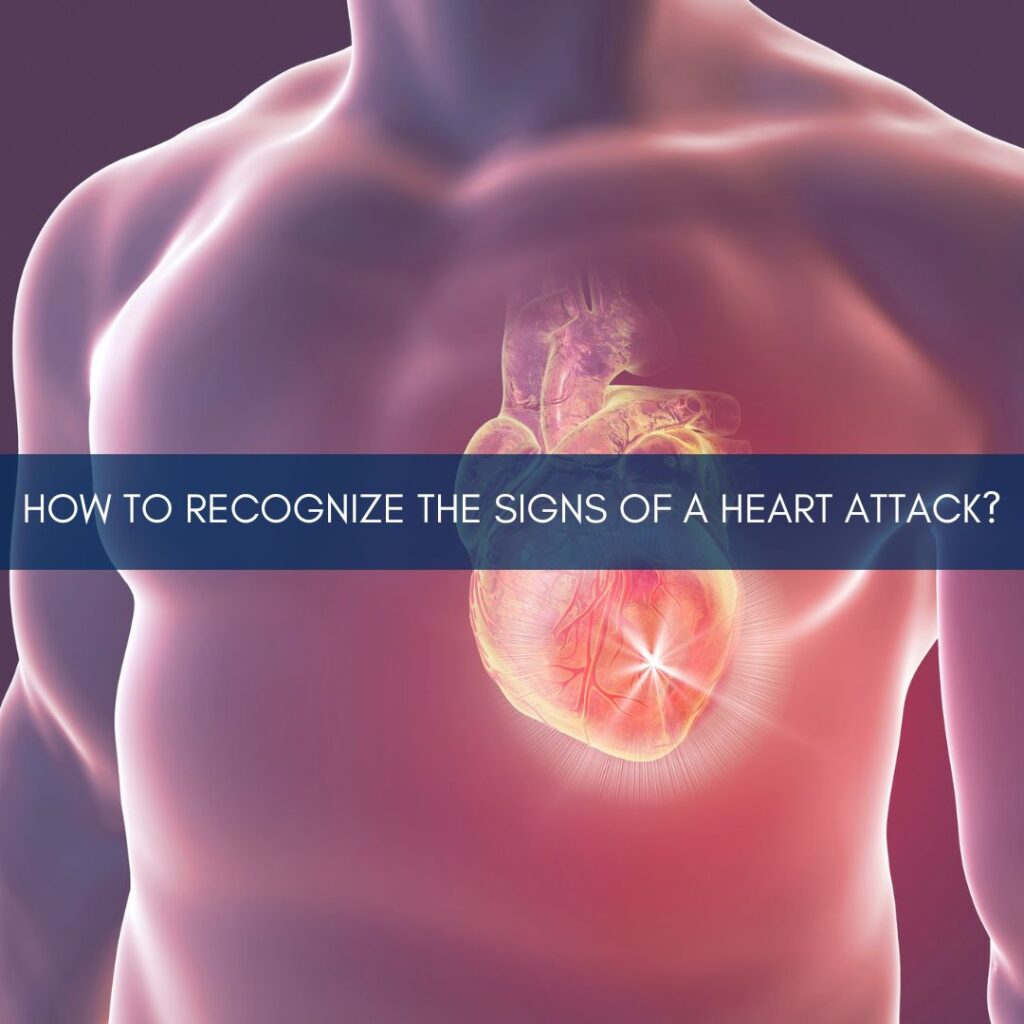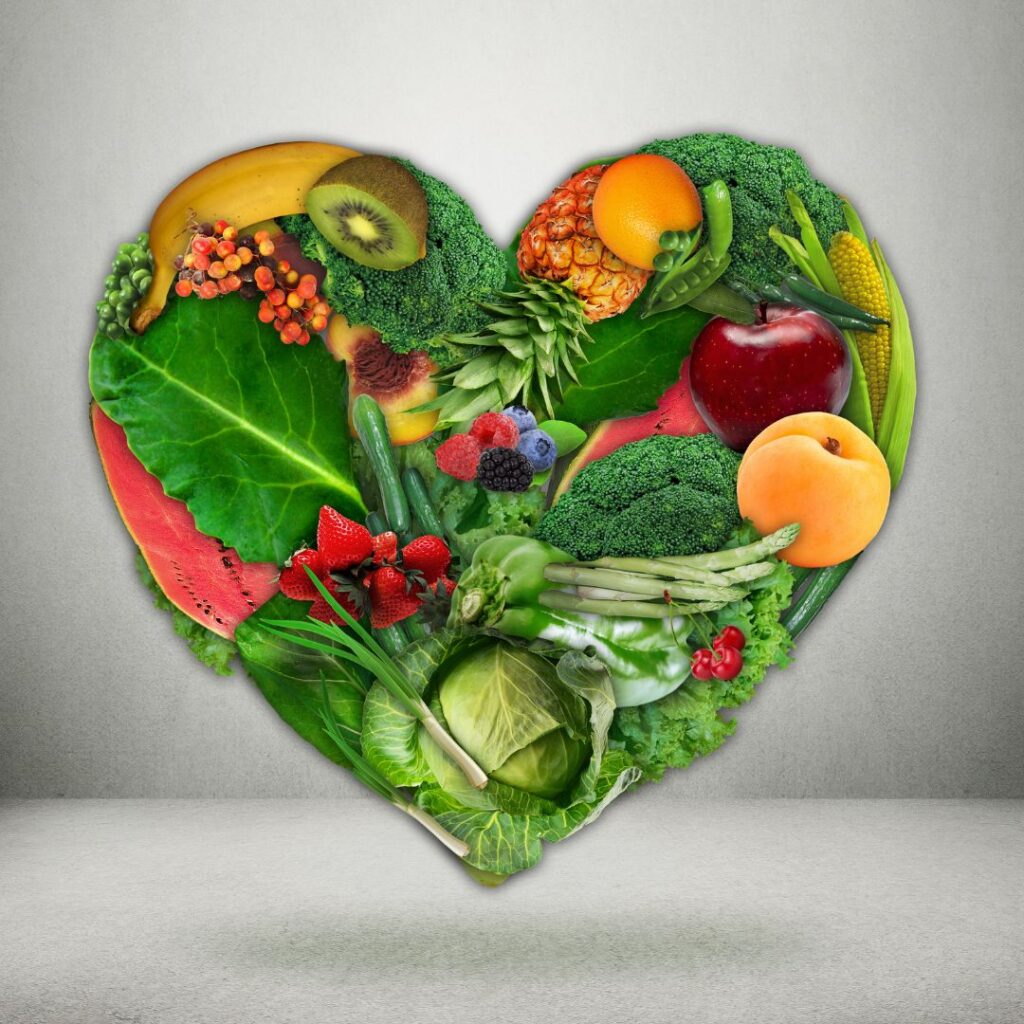Hello there! Today, I am going to shed some light on a crucial topic that could potentially save lives – recognizing the signs of a heart attack. As someone who cares about your well-being and the health of your loved ones, it’s essential to be aware of these warning signs and act promptly when they occur.

First things first, let me help you understand what a heart attack is. A heart attack, also known as a myocardial infarction (MI), happens when the blood flow to the heart is severely reduced or blocked, causing damage to the heart muscle. In India, heart attacks are becoming increasingly common, with the World Health Organization (WHO) projecting that by 2030, India will account for approximately 60% of the world’s heart disease burden.
Common symptoms
Now, let’s dive into the signs and symptoms of a heart attack. It is important to note that symptoms can vary from person to person and may not always be severe or obvious. In my career I have particularly noticed cases where the patients did not have the most common symptoms. Yet, here are some of the most common signs to watch out for:
- Chest discomfort: This is the most classic symptom of a heart attack. It may feel like a squeezing, pressure, fullness, or pain in the center of your chest that lasts for more than a few minutes or comes and goes.
- Upper body discomfort: You may experience pain or discomfort in one or both arms, the back, neck, jaw, or stomach.
- Shortness of breath: This can occur with or without chest discomfort and may feel like you can’t catch your breath.
- Cold sweat, nausea, or lightheadedness: These symptoms often accompany chest discomfort or shortness of breath.
Rare and uncommon symptoms
As I have mentioned before it is important to remember that not everyone experiences all of these symptoms, and some people may have more subtle signs. Women, older adults, and individuals with diabetes are more likely to have atypical symptoms, such as:
Epigastric pain (pain in the upper abdomen): Epigastric pain refers to discomfort or pain felt in the upper middle part of the abdomen, just below the ribcage. This area is known as the epigastrium. During a heart attack, some people may experience epigastric pain rather than the more typical chest pain. This pain can range from mild to severe and may be described as a burning, pressing, or squeezing sensation.
It’s important to note that epigastric pain can be easily mistaken for indigestion or other gastrointestinal issues, leading to a delay in seeking appropriate medical attention. If you experience persistent epigastric pain, especially if it is accompanied by other symptoms such as shortness of breath or lightheadedness, it’s crucial to consult a healthcare professional promptly.

Indigestion or heartburn-like sensations: Indigestion and heartburn are common digestive complaints that many people experience from time to time. However, during a heart attack, some individuals may feel sensations similar to indigestion or heartburn. These sensations can include a feeling of fullness, burning, or discomfort in the chest or upper abdomen.
I suggest paying attention to the context and duration of these symptoms. If the indigestion or heartburn-like sensations are accompanied by other signs of a heart attack, such as chest pressure or pain radiating to the jaw or arm, it’s critical to seek medical help immediately. Don’t dismiss these symptoms as mere digestive issues, especially if they are severe, persistent, or unusual for you.
Unexplained fatigue or weakness: Feeling tired or weak is a common experience for many people, especially after a long day or strenuous activity. However, sudden or unexplained fatigue or weakness can be a warning sign of a heart attack, particularly when accompanied by other symptoms.
During a heart attack, the heart struggles to pump blood effectively, which can lead to a lack of oxygenated blood reaching the body’s tissues. This can cause feelings of exhaustion, weakness, or even lightheadedness. If you experience sudden, unexplained fatigue or weakness, especially if it is severe or limits your ability to perform daily activities, it’s important to consult a healthcare provider.
Dizziness or fainting: Dizziness or fainting (syncope) can occur during a heart attack when there is a reduction in blood flow to the brain. This can happen due to a drop in blood pressure or an irregular heartbeat. Some people may feel lightheaded, unsteady, or experience a spinning sensation (vertigo) before fainting.
Fainting during a heart attack is a serious concern, as it can lead to falls and injuries. If you or someone around you experiences dizziness or fainting, especially if it is accompanied by chest discomfort or shortness of breath, it’s crucial to seek emergency medical attention right away.
Remember, these atypical symptoms can be easily overlooked or attributed to other causes, leading to a delay in receiving proper care. If you experience any of these symptoms, particularly in combination with more classic heart attack signs, don’t hesitate to call emergency services and get evaluated by a healthcare professional. According to a study published in the Indian Heart Journal, the average time from symptom onset to hospital arrival for heart attack patients in India is 360 minutes (6 hours), which is significantly longer than the recommended time of 120 minutes (2 hours) or less.
| Time to Hospital Arrival | Percentage of Patients |
| Less than 2 hours | 31.6% |
| 2-4 hours | 25.2% |
| 4-6 hours | 16.1% |
| More than 6 hours | 27.1% |
Source: Indian Heart Journal, 2018
Be a Heart Hero: Your Quick Action Can Save a Life!
Let’s discuss the crucial steps you should take when someone around you is having a heart attack. Quick action can significantly improve their chances of survival and recovery. Here are the key tips to keep in mind:
- Call emergency services immediately: The first and most critical step is to call for an ambulance right away. In India, you can dial 108, 102, or 112 to reach emergency services. Explain the situation clearly and provide your location so help can arrive as soon as possible.
- Make the person sit or lie down: Help the person experiencing the heart attack to sit or lie down in a comfortable position. This helps reduce the strain on their heart and can alleviate some of the symptoms.
- Loosen tight clothing: If the person is wearing any tight clothing, such as a collar, tie, or belt, loosen it to help them breathe more easily.
- Administer aspirin: If the person is not allergic to aspirin and is conscious, give them a 300mg aspirin tablet to chew and swallow. Aspirin helps thin the blood and can reduce the severity of the heart attack. However, do not give aspirin if the person is allergic or if their doctor has previously advised against it.
- Keep the person calm: Try to keep the person calm and reassured while waiting for the ambulance. Encourage them to take slow, deep breaths and remind them that help is on the way.
- Perform CPR if necessary: If the person becomes unconscious and stops breathing, start performing hands-only CPR. Push hard and fast in the center of their chest at a rate of 100-120 compressions per minute until the ambulance arrives. If you are not trained in CPR, the emergency services operator can guide you through the process over the phone.
- Gather important information: If possible, try to gather the person’s medical history, medications, and any known allergies. This information can be helpful for the emergency medical team when they arrive.
Here’s a quick summary of the steps:
- Call emergency services (108, 102, or 112 in India)
- Help the person sit or lie down comfortably
- Loosen tight clothing
- Give aspirin (if not allergic and conscious)
- Keep the person calm
- Perform CPR if necessary
- Gather important medical information
By following these tips and acting swiftly, you can make a significant difference in the outcome of a heart attack. So, recognizing the signs of a heart attack and acting promptly can make a significant difference in the outcome. As responsible individuals, let’s pledge to educate ourselves and others about these warning signs and the importance of seeking immediate medical attention.
Stay safe, stay healthy, and always prioritize your heart health.